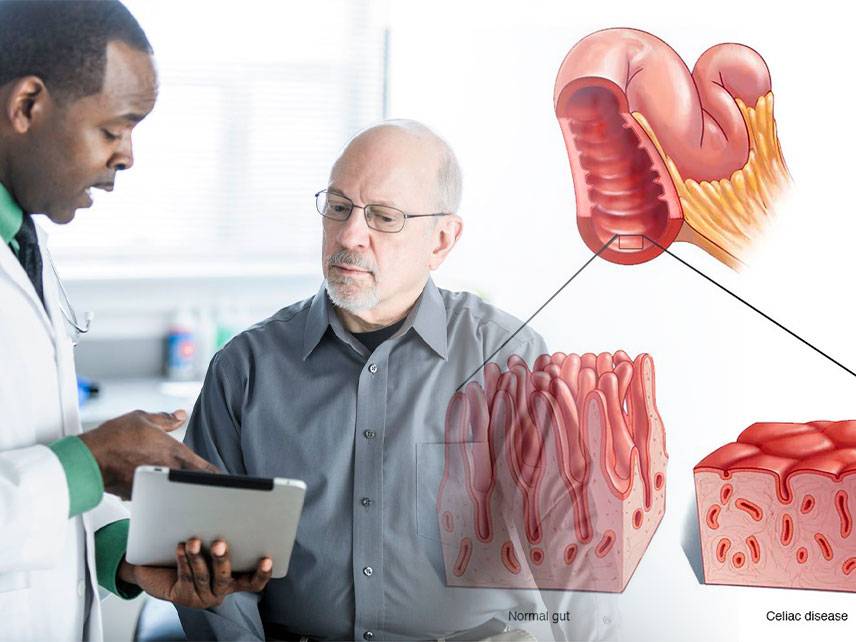Celiac disease is an autoimmune disorder that affects the digestive system. It is triggered by consuming gluten, a type of protein found in wheat, barley, and rye. When people with celiac disease eat gluten, their body mounts an immune response that attacks the small intestine. This response can lead to various symptoms, as well as long-term health complications.
Signs and Symptoms
Common symptoms of celiac disease include:
-
Bloating
-
Diarrhea
-
Constipation
-
Abdominal pain
-
Unexplained weight loss
-
Fatigue
-
Anemia
-
Delayed growth
-
Skin rash
-
Joint pain
Causes
Celiac disease is caused by a reaction to the gluten in wheat, barley, and rye. This triggers an immune response in the body, which attacks the small intestine. This immune response can lead to inflammation, damage to the villi (the small projections in the small intestine that absorb nutrients from food), and other digestive issues.
Risk Factors
Risk factors for celiac disease include:
-
Having a family history of celiac disease
-
Having another autoimmune disorder, such as type 1 diabetes or thyroid disease
-
Being of European descent
Prevention
There is no way to prevent celiac disease, but there are ways to reduce the risk of developing it. These include avoiding foods containing gluten, such as bread, pasta, and pastries made with wheat, barley, and rye.
Diagnosis
Celiac disease is diagnosed through a combination of blood tests, biopsy, and genetic testing. Doctors may also recommend an elimination diet to help identify foods that may contribute to symptoms.
Treatment
The primary treatment for celiac disease is to follow a gluten-free diet. This means avoiding all foods that contain gluten, such as bread, pasta, and pastries made with wheat, barley, and rye.
Coping and Support
Living with celiac disease can be difficult. It can be helpful to join a support group and talk to others who are experiencing similar issues. It is also important to find ways to manage stress, such as exercising, meditating, or talking to a therapist.
Complications
Complications of celiac disease can include malnutrition, anemia, osteoporosis, infertility, and nerve damage.
Living with Celiac Disease
Living with celiac disease can be challenging, but it is possible to manage the condition. Eating a balanced, gluten-free diet, avoiding foods containing gluten, and finding ways to manage stress can help people with celiac disease live happy and healthy lives.
Celiac disease is an autoimmune disorder that affects the digestive system. It is triggered by consuming gluten, and can lead to various symptoms and long-term health complications. Treatment involves a gluten-free diet, as well as other lifestyle changes. With proper management and support, people with celiac disease can live happy and healthy lives.





